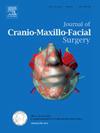人工智能时代的引文完整性:评估颌面部文献中参考文献幻觉的风险。
IF 2.1
2区 医学
Q2 DENTISTRY, ORAL SURGERY & MEDICINE
引用次数: 0
摘要
在学术写作中越来越多地采用大型语言模型(llm),如ChatGPT,这带来了机遇和风险。虽然这些工具提高了生产力和可访问性,但它们在生成准确参考方面的可靠性仍然不确定。这种简短的交流凸显了人们对“参考幻觉”日益增长的担忧,即人工智能生成的引用看似合法,但却是捏造的,或者包含重大的元数据错误。在所有科学学科中,包括以证据为基础的口腔颌面外科(OMFS),这种不准确会破坏学术诚信和临床信任。本文总结了文献中常见的参考相关错误,并呼吁提高编辑警惕性,进行人工智能素养培训,并整合实时书目工具。在学术出版中负责任地使用人工智能对于保持外科文献的质量和可信度至关重要。本文章由计算机程序翻译,如有差异,请以英文原文为准。
Citation integrity in the age of AI: evaluating the risks of reference hallucination in maxillofacial literature
The increasing adoption of large language models (LLMs) such as ChatGPT in academic writing has introduced both opportunities and risks. While these tools enhance productivity and accessibility, their reliability in generating accurate references remains uncertain. This short communication highlights the growing concern of ‘reference hallucination’, where AI-generated citations appear legitimate but are fabricated or contain significant metadata errors. Across all scientific disciplines, including oral and maxillofacial surgery (OMFS), where evidence-based practice is foundational, such inaccuracies can undermine academic integrity and clinical trust. This article summarizes common reference-related errors reported in literature and calls for heightened editorial vigilance, AI-literacy training, and the integration of real-time bibliographic tools. Responsible use of AI in scholarly publishing is essential to preserving the quality and credibility of surgical literature.
求助全文
通过发布文献求助,成功后即可免费获取论文全文。
去求助
来源期刊
CiteScore
5.20
自引率
22.60%
发文量
117
审稿时长
70 days
期刊介绍:
The Journal of Cranio-Maxillofacial Surgery publishes articles covering all aspects of surgery of the head, face and jaw. Specific topics covered recently have included:
• Distraction osteogenesis
• Synthetic bone substitutes
• Fibroblast growth factors
• Fetal wound healing
• Skull base surgery
• Computer-assisted surgery
• Vascularized bone grafts

 求助内容:
求助内容: 应助结果提醒方式:
应助结果提醒方式:


